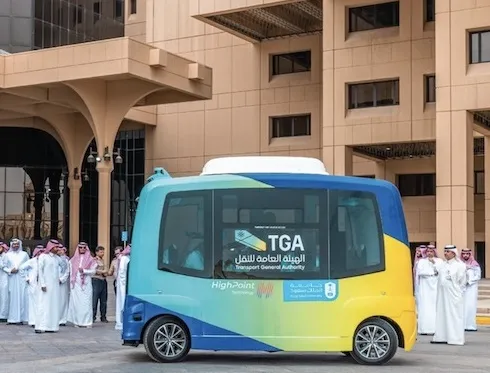
EasyMile is to help develop regulations for autonomous driving in Saudi Arabia.
Transport General Authority (TGA) of Saudi Arabia, in collaboration with the Kingdom’s Ministry of Transport and its Royal Commission for Riyadh City (RCRC), has chosen the French autonomous vehicle specialist to deploy two driverless shuttles at the King Saud University (KSU) campus in Riyadh.
They cover a 2km route connecting various university buildings with the cafeteria and parking areas, running five days a week from 9am - 4pm, operated by High Point Tech.
TGA will use the service to gain knowledge and insight to shape "comprehensive autonomous driving legislation" in Saudi Arabia.
KSU offers "an ideal launch pad for the development of autonomous driving capabilities and the subsequent transition to public roads", EasyMile says.
"The controlled environment provided by KSU allows extensive testing, fine-tuning, and validation of autonomous systems. This close collaboration between technology development and regulatory framework ensures that the legal requirements align with the capabilities and standards of autonomous driving systems, facilitating a smooth transition from private sites to public roads."
It is the first autonomous vehicle provider to work with TGA and underwent what EasyMile says is a "robust tender process".
EasyMile already works with the Dubai Road and Transport Authority in United Arab Emirates.









